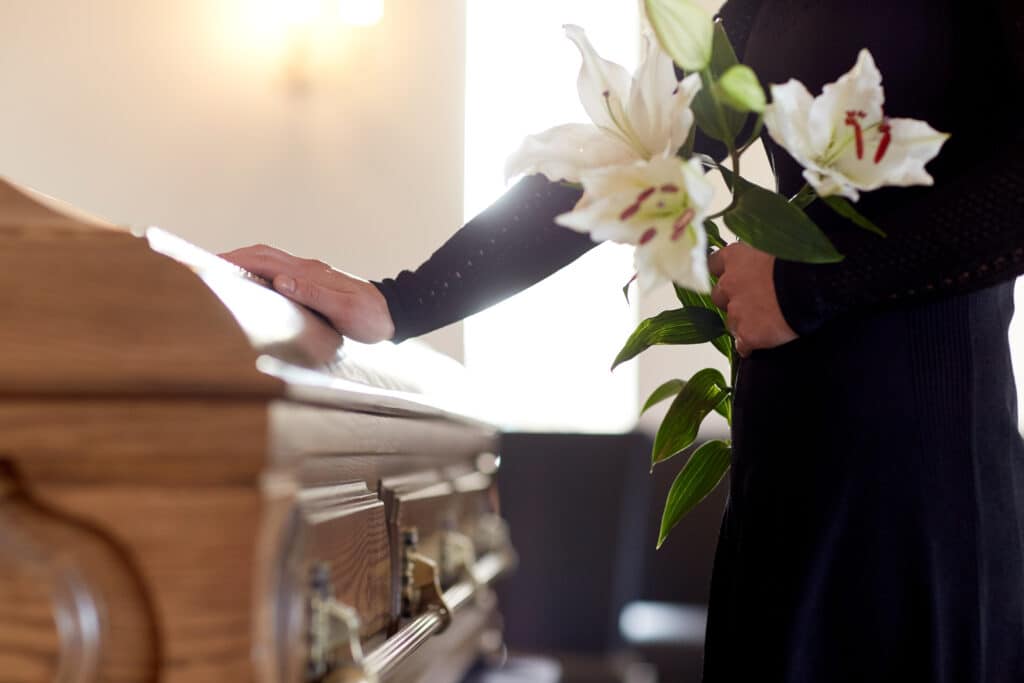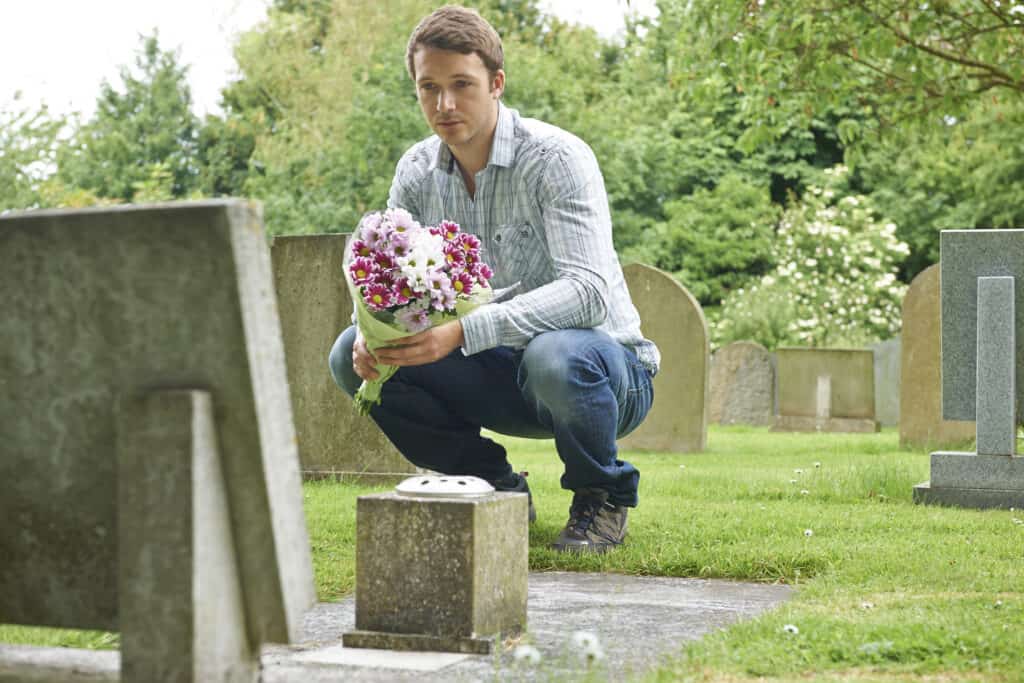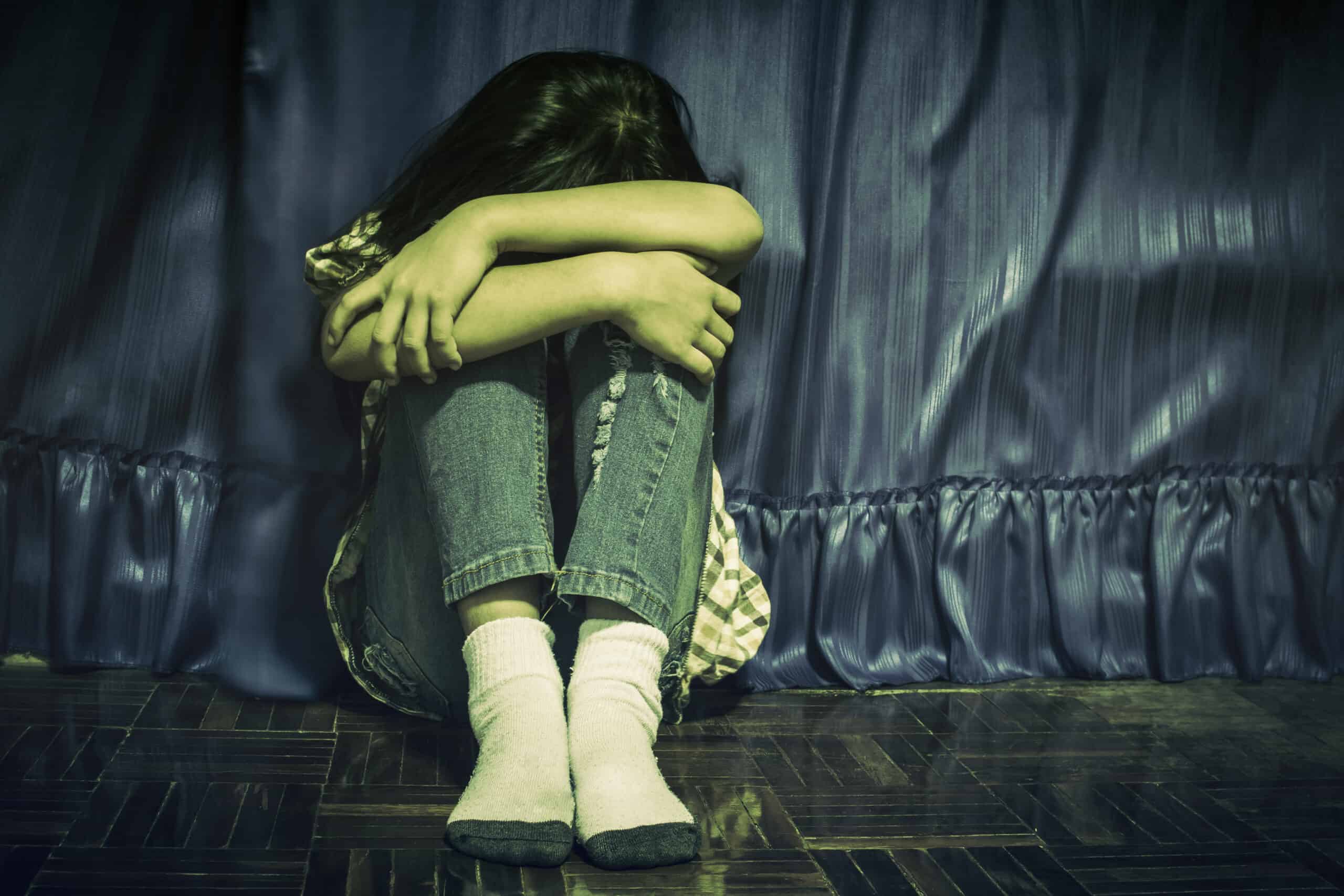Bereavement & Grief
Life has changed for you because someone close to you has died. Whether the death was sudden or expected you may experience a range of strong and painful feelings such as shock, disbelief, anger, guilt, anxiety and sadness. These feelings of grief are very normal but may be experienced differently by each individual. Grieving is the process of going through these painful feelings and learning to live without that person in your life.
This site aims to help you understand your grief and cope with the issues you face at the time of death. Firstly, we will look at the emotional and physical reactions to grief and give suggestions for helping you and others through grief. Many people are worried about the effects of death on children and this will also be looked at.
Grief & feelings of loss
Everyone reacts differently to death and it is important to remember that there is no right or wrong way to grieve. The way you experience grief will be affected by the level of support you have, the relationship you had with the person who has died, your previous experience of loss and death, your personality and the extent to which your life changes as a result of the death.
You may experience some of the following emotional and physical reactions when someone close to you dies.

DISBELIEF
The initial response to bad news is often one of disbelief – you feel what has happened is unreal, almost like a bad dream. The sense of disbelief can stay with you for some time.
SHOCK
In a state of shock you may feel numb, bewildered, stunned and unable to think clearly. In some ways shock protects you from the full impact of the death. The sense of numbness will start to fade in a few days or weeks, although it may return from time to time.
LONGING AND SEARCHING
You may have a sense of longing for the person who has died, to see, hear, hold, and talk to him/her. At times you may find yourself looking for the person or feel you have seen or heard him/her, perhaps in a crowd or familiar place.
ANGER
This is a normal response to your loss. People frequently feel angry at the unfairness of life or at God for allowing the death to happen. It is also common to feel angry with yourself, family or friends or with those who were involved with caring at the time of the illness and death. You may also be angry with the deceased for leaving you at this time.
GUILT
There is a tendency to go over the events surrounding the death again and again. Bereaved people may blame themselves for things done or left undone, words said or left unsaid. If you feel there was something you could have done to prevent the death, it is important to remember that people sometimes make decisions over which you have no control. You may find yourself focusing on a difficult time in your relationship, Remember that happy and unhappy times are a feature of all relationships. Feelings of guilt are normal though not often not justified. It is best to discuss these feelings with someone you trust.
DESPAIR AND HOPELESSNESS
At times, you may feel you cannot bear the pain any longer and think you won’t survive this loss. It helps to talk about this despair to someone close to you or to your doctor or other professional you know.
DEPRESSION
Depression is a feeling of overwhelming sadness and hopelessness that is often experienced following bereavement. You lose interest in everything and ordinary everyday tasks require a lot of effort. Other symptoms may include difficulty with sleep, appetite problems, crying continuously or inability to cry, withdrawal from family and friends, poor concentration and forgetfulness. These symptoms are a normal part of the grief process and therefore should not cause undue concern. However, if they become very intense and are experienced over a long period of time you should seek your doctor’s advice.
ANXIETY AND FEARS
Following bereavement feelings of anxiety are common. You may feel very vulnerable, lose confidence in yourself and in the world, fear for the well being of others and perhaps fear that something else terrible will happen. You may doubt your ability to cope and be slow to admit this to yourself or others for fear of losing control. Anxiety may lead to panic attacks.
LONELINESS AND SADNESS
The loss of a special relationship leaves you feeling sad, lonely and empty. You are without the love and understanding of that person. Eventually, others appear to get on with their own lives and you may be feeling very alone. Friends and family may withdraw because they feel helpless. When you have lost a partner or close friend you may be especially lonely because you are without the person with whom you shared everyday activities.
RELIEF
It is normal to feel relieved that the person’s suffering is over. It is also normal to feel relieved that a person with whom you had a difficult relationship is no longer here and you can begin a new life. Many people find that there were aspects of the deceased’s personality that they will not miss. You may feel guilty about these feelings buy they are a normal part of grief.
PHYSICAL REACTIONS
Grief not only affects you emotionally but also physically. Some common symptoms are lack of energy, appetite, changes, difficulty in sleeping, nausea, diarrhoea, a tight feeling in the chest, headaches, muscular tension, inability to concentrate and a tendency to be forgetful. It helps to understand that these symptoms may be part of the grief reaction. However, if they persist or are causing worry consult your doctor for a check up.

Helping yourself through the grief
Don’t be frightened by the intensity of the pain you may be feeling. When someone dies who was an important part of your life you are mourning not only for the person who has died but also for the hopes, plans and expectations you had with and for that person that will not be unfulfilled.
Grief can absorb all your energy and can affect all areas of your life. Grief can take a long time and there is no fixed time in which you should expect to feel better. Gradually, the intensity of the pain will lessen as you work through your grief and you will begin to look forward to the future with hope.
Here are some suggestions that may help you through your grief
- It helps to talk about the person who has died and about how their death is affecting you.
- Don’t distance yourself from people. It is good to spend time with people who care about you. Don’t assume they know exactly what your needs are. Let them know how you are feeling and accept their support.
- Give yourself time. Do not have unrealistic expectations of yourself. Don’t compare yourself to others and how they have coped with their loss. Grief comes and goes, expect to have good and bad days.
- Don’t over extend yourself by taking on too many responsibilities, these are best shared among a number of people.
- Where possible don’t make major changes in your life during this time. If you must, discuss them with people you trust.
- Don’t rely on alcohol or drugs to make you feel better.
- Take time for yourself. Do things you enjoy. Get plenty of rest and try to eat well. Exercise can help to work off stress and may help you sleep.
- You may find that keeping a diary of your thoughts and feelings can help.
- There are many books available on bereavement which can help you understand what you are going through. Bereavement counselling or joining a bereavement group may also help you work though your grief.
- It can help to understand that birthdays, anniversaries or other special times can bring up painful feelings you thought you had overcome.
- Don’t feel guilty about having good times. Plan things you enjoy and to which you can look forward.

How to help others through the grief
Here are some suggestions on helping others through grief
- Don’t avoid your friend or family member or let them become isolated. Keep in contact as you have always done. If you can’t get to see them, write a letter or phone.
- Help them in practical ways. Everyday tasks can be overwhelming following a death.
- Most people who have been bereaved want to talk about the deceased. Listen, don’t change the subject or avoid mentioning his or her name.
- Allow them to cry and don’t be afraid to cry with them.
- Sometimes it is difficult to know what to say when they ask “why did this happen?”. This is most often an expression of their pain rather than a question, which you have to answer. It’s okay to say, “I don’t know why”.
- Avoid using clichés in response to someone’s upset. It’s better to say nothing or just to acknowledge that this is a difficult time for them.
- Expect that they may be angry and frustrated at times and are likely to take this out on people closest to them. Make allowances for this.
- If they feel guilty let them talk about it. Feelings that are causing difficulty need to be expressed. It can help to reassure the person that they did the best they could under the circumstances.
- Following a death one family members often expected too take on new role and responsibilities. This can be too much for one person and is best shared. If this is not possible be supportive and don’t forget that he/she is also grieving.
- Grief comes in waves so expect them to have good and bad days. On good days they will want to get on with life as normal and on bad days they will need extra care and understanding from you.
- In the months following the death you may expect them to feel better when in fact they may seem worse. It may only be now that they are feeling the full extent of their loss. Be patient, grieving takes a long time
Children and Bereavement
Many people worry about what to tell children and how to help them when someone close to them dies. Children’s reactions to death depend on their age and stage of development. However, children, even the very young, often understand much more than the adults may realise.
Children’s grief differs from adults in that it is sporadic – your child may be upset one moment and a few moments later go out to play. This is quite normal. The following suggestions may help you when discussing the death of someone close with your child, and in responding to their grief. You may find this hard because of your own upset. Ask for support from family and friends who are close to you or your child.

Ways to help children when someone dies
When a death is expected, prepare children beforehand. This should be done by the person or people closest to them. Let them know gradually what is happening, for example “the doctors and nurses are trying very hard to make Mammy better but they don’t think she will get better”. Allow them to ask questions in their own time. They may ask directly if the person is going to die. Answer them as truthfully as possible. Help them express their worries and fears. Your could say something like “we are all very sad that Mammy is dying. Sometimes we feel angry and scared”.
This may help children talk about what they feel. Explain to them that it is nobody’s fault that the person is dying, that it is because she/he is very sick. Most importantly, reassure them that you love them and will be there to care for them.
When a death is sudden children should learn about it as soon as possible and should be told by a parent or someone very close to them.
Over simplified or inappropriate explanations will increase the child’s fear and uncertainty and about what is happening. Explanations such as “Daddy was sick and has gone to heaven” pr “Granny went to sleep and died” may lead to confusion. The child will need an explanation that there are different types of sickness, e.g. “little” and “big” sicknesses, also telling the child about a death the words “dead” or “died” should be used. Phrases such as “has gone away” or “passed away” may be confusing for young children who can be very literal. They may be under the impression that the person is alive elsewhere or will return. Death should not be equated with sleep. Such explanations may result in the child being fearful of bedtime or of going to sleep.
Keep explanations short, simple and truthful. They may need to be repeated many times. It might be useful for example to say to the younger child “Daddy was very sick. It was a big sickness, not like having a cold. The doctors and nurses could not make him better even though they tried very hard. Daddy’s body could not work anymore so he died. Being dead doesn’t hurt”. Your explanation will also depend on the questions asked by the child.
It is best to tell all the children together. Gather them close to you and use language they can all understand. Afterwards, it may help to spend some time alone with each child.
It is difficult to predict how children will react to bad news. They may cry, ask questions matter of factly, be silent or run out of the room. The most important thing is to be honest and open and to listen to what the child is saying. In this way, the child will know that death is an open subject and that they can ask questions and talk about worries as they arise.
Involving children in the services and funeral may help them feel included and make the death more real for them. Make sure each child is looked after by a specific person who knows them. Children can feel very isolated and forgotten at funerals. It is important to give children choices and not to force them to do anything they are uncomfortable doing. Prepare children beforehand should they wish to see the body of the person who has died or attend the funeral.
Children may ask the same questions many times. Although this may be difficult for you, it is their way of trying to understand what has happened.
Maintain usual routines as much as possible. The death of someone close, especially a parent, may leave children feeling insecure and worried about who will take care of them. Comfort them and reassure them that you love them and will take care of them.
Children learn from adults how to deal with death. Encourage the child to talk about feelings and share with them that you are also sad. It is okay to cry in front of children but explain why you are upset, as they can feel very helpless when they see an adult upset.
Children can be very aware of their parent’s grief and for this reason may not talk about the person who has died in case they cause further upset. If this is happening you should talk to them about the person so that they can express their feelings.
Children sometimes feel that they did something, which caused the death. Explain the cause of death and that is had nothing to do with things they said or did. Perhaps, when a child’s brother or sister has died, the child may have said such things as “I wish you were dead” and may now feel that this in some way caused the death.
Children may display regressive behaviour. It is common for children to react to stress by reverting to an earlier stage of development, for example, thumb sucking and bed-wetting. This may have to do with pent up feelings of anger and frustration. Most of these are temporary. However, if you become worried about your child’s behaviour consult your doctor, public health nurse, social worker or the child’s teacher.
Returning to school may be particularly difficult for a child. They may be worried about who has been told and what they should say to other children. Help them to prepare a simple and honest explanation of what has happened.
Sometimes children are teased or can be hurt by insensitive remarks. Children’s concentration in school is usually affected because of the many changes with which they are coping. Talk with your child regularly about how they are finding school and keep in touch with their teacher.
Children’s reaction to death according to age
- UNDER TWO YEARS
It is generally understood that children younger than two years old do not understand the meaning of death. However, even very young children can display anxiety and upset when someone close to them suddenly disappears. Babies and toddlers may be cranky and clingy during this time. Toddlers may become upset or subdued and uninterested in their surroundings. The most important thing for very young children is to ensure continuity in their usual daily routines and the presence of one main carer. Plenty of cuddles, comfort and familiar toys are also important.
- TWO TO FIVE YEARS
Young children sense when adults are upset. Your first instinct will probably be to protect young children from sadness. However, not telling them about what has happened or sending them away to neighbours or friends without explanation will cause confusion and insecurity.Children in this age group cannot fully understand the permanence of death.They may confuse death with sleeping or being away and may search for the missing person. They may repeatedly ask for example “when is Daddy coming home?’ even though you have explained that when someone dies they are gone forever. You will need to be consistent in your answers in your answers to questions about the death. Children of this age need to hear the same information over and over.Younger children may think they did something to cause the person to die or that death is a punishment for something they did wrong. Children may also have worries about who will care for them, particularly when a parent has died.
They may have fears that other members of their family may also die. Short, straightforward explanations of what caused the death, what happens at the funeral and reassurance about who will take care of them will usually help. Young children don’t always have the words to explain what they are feeling and may become clingy, withdrawn or express upset through tantrums or destructive behaviour. Being open with your children and maintaining the usual rules and routines will help during this time of upheaval and upset.
- FIVE TO TWELVE YEARS
From about the age of five, children gradually begin to understand more about death. As they get older they can understand that death is permanent and that the dead person does not move, talk breathe, eat and so on.They may be particularly interested in the biological aspects of death, for example, what caused the death and what happens when the person is buried or cremated.As children of this age can have very active imaginations, it is important to truthfully explain the cause of death in terms they can understand. As with younger children, the words “dead” and “died” should not be avoided. When explaining burial and cremation, emphasise that it is only the body which is put in the ground or is burnt and that person cannot feel anything.Children in this age group may deny the reality of the death and act as if nothing has happened.
This is their way of coping and you can help them express their feelings by talking about the person who has died, sharing memories and letting them see you grieve, Making scrap books and photo albums, painting or writing stories about the person who has died, going to a special place or saying special prayers are all concrete ways of helping children grieve. It is often through these types of activities and through play rather than by talking that children express grief.As with younger children, five to twelve year olds may be withdrawn, aggressive or prone to tantrums following the death of someone close.
They may also have disturbing dreams or nightmares. They may complain of headaches or tummy aches or be anxious about leaving you, for example when going to school or on holidays. Clear explanations about the cause of death and involvement in funeral and remembrance services can help children adjust to the death. You will also help by maintaining normal routines and rules and reassuring them that they are still loved and will be cared for by you.
- ADOLESCENTS (12-18 YEAR OLDS)
The adolescent’s experience of grief especially as they get older is similar to that of adults. A sense of desertion, feelings of anger, loneliness, yearning for the dead person and physical symptoms are all common. However their grief will be influenced by the many changes of adolescence such as becoming independent from their family and establishing their own identity. They may have had a stormy relationship with the person who has died and following the death may experience regret and guilt. They need reassurance that these feelings are common to many people who are bereaved.Some adolescents cope with death by suppressing their emotions and may appear withdrawn.It is common for adolescents to seek support outside the family. They may also be reluctant to talk to you about the death in case this upsets you. Give them opportunities to talk. Although they may appear grown up, this is a time of insecurity and they need extra support and reassurance. It is important to include them in decision and respect their feelings and wishes. Try not to over burden them with the difficulties you are facing or expect them to take on too many responsibilities.








